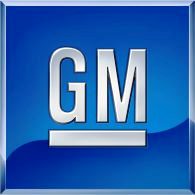They’ve become the engine of choice for European motorists and now, it appears, momentum is finally building to bring diesels into the American mainstream, as well.
Reversing its long-held position that diesels don’t make sense in the U.S. except on heavy-duty trucks, General Motors’ product czar says the maker is planning to develop a diesel-powered sedan for Stateside buyers.
GM Vice Chairman Tom Stephens wouldn’t say much else during a speech to the Directions in Engine-Efficiency and Emissions Research, or DEER, conference. But he did note that there are plenty of diesels to draw from using technology developed by the maker’s European subsidiary, Opel AG.
Stephens predecessor, now-retired V. Chairman Bob Lutz, had repeatedly vetoed the idea of an American diesel insisting that the technology was already too costly and would grow even more expensive in light of next-generation diesel emissions regulations.
While modern diesels have overcome most of the challenges posed by past generations of oil burners – they no longer smoke or smell, or make nearly as much clatter, for that matter – they still pose problems bringing particulates and oxides of nitrogen levels down to what gasoline technology is capable of. Industry estimates suggest that modern diesels can cost $2,000 to $4,000 more than a petrol-powered engine due to emissions systems and the figures could rise by several thousand more to meet future standards.
Proponents, however, argue that for most Americans diesels are a more effective way to improve fuel economy, especially for motorists who aren’t spending a lot of time in stop-and-go traffic.
It appears GM has yet to finalize specifics on the model and brand that will get the diesel, and a production model, he hinted, is still likely several years away.
And by the time it gets here the market could be seeing a growing stream of diesel offerings. While Detroit and some of the leading Japanese makers remain reluctant, European marques have been ramping up their diesel line-up. Volkswagen, the powertrain segment leader, says diesels now account for 20% of the volume for some models, such as the Jetta. Mercedes-Benz has had similar success on a number of models. At BMW, demand for diesels has been strong on the hefty X5, but less than overwhelming with the diesel version of the 3-Series.
In an interview with TheDetroitBureau.com, last week, Volvo Cars North America CEO Doug Speck revealed that the Swedish maker will bring a “balanced” portfolio, including hybrids and diesels, to the U.S. market over the next several years. (Click Here for more.)
Meanwhile, the second-tier Japanese maker, Mazda, also plans to bring a diesel version of its next-generation Sky engines to the American market.
Even proponents admit the technology faces a tough time connecting with buyers. Fuel prices vary widely and diesel often costs more than in Europe, where it is subsidized by many countries. And motorists don’t have much familiarity with the latest versions of the technology.
Instead, many buyers recall the smelly, noisy and trouble-plagued diesels of the 1970s and ’80s, such as the “exploding” diesels sold by GM’s Oldsmobile division that had an annoying propensity to fail catastrophically. Those Olds engines largely killed interest in the high-mileage technology and set in motion a chain of setbacks that eventually led to the demise of the Oldsmobile brand itself.

